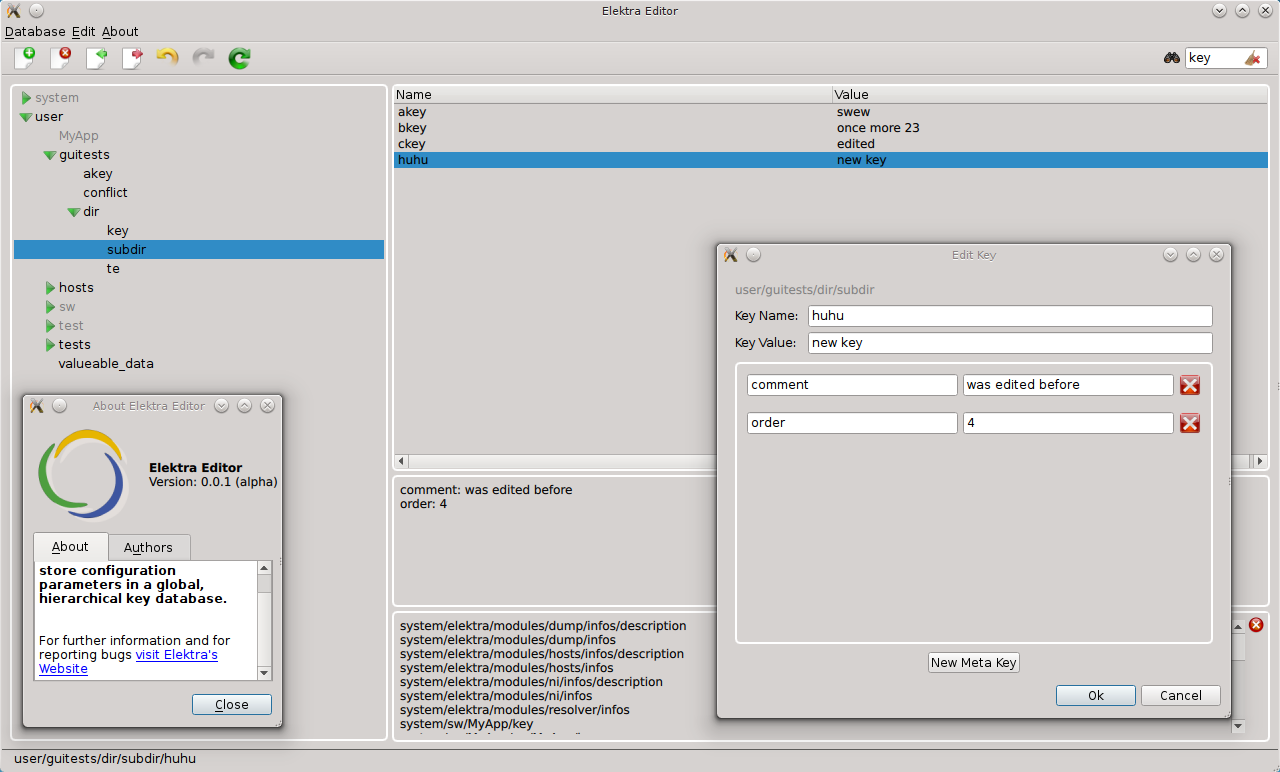Lunar: Reproducible builds: first week in Stretch cycle
 Debian Jessie has been released on April 25th, 2015. This has opened the
Stretch development cycle. Reactions to the idea of making Debian
build reproducibly have
been pretty enthusiastic. As the pace is now likely to be even faster,
let's see if we can keep everyone up-to-date on the developments.
Before the release of Jessie
The story goes back a long
way
but a formal announcement to the
project
has only been sent in February 2015.
Since then, too much work has happened to make a complete report, but
to give some highlights:
Debian Jessie has been released on April 25th, 2015. This has opened the
Stretch development cycle. Reactions to the idea of making Debian
build reproducibly have
been pretty enthusiastic. As the pace is now likely to be even faster,
let's see if we can keep everyone up-to-date on the developments.
Before the release of Jessie
The story goes back a long
way
but a formal announcement to the
project
has only been sent in February 2015.
Since then, too much work has happened to make a complete report, but
to give some highlights:
- New variations are now tested: umask, kernel version, domain name, and timezone. We might only be missing CPU type and current date now.
- Many improvements to the test system on jenkins.debian.net and the pages showing the results.
- Now not only packages from
unstableare tested but also those intestingandexperimental. - When rescheduling packages for testing, the build products can be kept and the IRC channel gets a notification when its over.
- binutils version
2.25-6 is now built with
the
--enable-deterministic-archivesflag. Makingar,stripand others create deterministic static libraries. - Number of identified issues has grown from about 80 to 123 today.
- Niels Thykier uploaded
debhelper/9.20150501
which includes fixes to
dh_makeshlibs(#774100),dh_icons(#774102),dh_usrlocal(#775020). Patches written by Lunar. - Helmut Grohne uploaded doxygen/1.8.9.1-3 which will not generate timestamps in HTML by default. Kudos to akira for bringing the issue upstream.
- Kenneth J. Pronovici uploaded
epydoc/3.0.1+dfsg-6
adding a
--no-include-build-timeoption. Patch by Jelmer Vernooij. - David Pr vot uploaded php-apigen/2.8.1+dfsg-2 which now has reproducible output.
- C dric Boutillier uploaded ruby-prawn/2.0.1+dfsg-1 which now produce a deterministic output when using gradients. Patch by Lunar.
- Jelmer Vernooij uploaded
samba/2:4.1.17+dfsg-4 which
contains a patch by Matthieu Patou making the output of
pidl(fromlibparse-pidl-perl) reproducible. - Dmitry Shachnev uploaded sphinx/1.3.1-1 in experimental which should produce deterministic output. The original patch from Chris Lamb has inspired the upstream fix.
- gregor herrmann uploaded libextutils-depends-perl/0.404-1 which makes ExtUtils::Depends output deterministic. Original patch by Reiner Herrmann.
- Niko Tyni uploaded perl/5.20.2-4 which makes the output of Pod::Man reproducible. Nice team work visible on #780259.
-creation-date to genisoimage.
Reiner Herrmann opened #783938 to
request making -notimestamp the default behavior for javadoc.
Juan Picca submitted a patch to add a
--use-date flag to texi2html.
Packages fixed
The following packages became reproducible due to changes of their
build dependencies:
apport,
batctl,
cil,
commons-math3,
devscripts,
disruptor,
ehcache,
ftphs,
gtk2hs-buildtools,
haskell-abstract-deque,
haskell-abstract-par,
haskell-acid-state,
haskell-adjunctions,
haskell-aeson,
haskell-aeson-pretty,
haskell-alut,
haskell-ansi-terminal,
haskell-async,
haskell-attoparsec,
haskell-augeas,
haskell-auto-update,
haskell-binary-conduit,
haskell-hscurses,
jsch,
ledgersmb,
libapache2-mod-auth-mellon,
libarchive-tar-wrapper-perl,
libbusiness-onlinepayment-payflowpro-perl,
libcapture-tiny-perl,
libchi-perl,
libcommons-codec-java,
libconfig-model-itself-perl,
libconfig-model-tester-perl,
libcpan-perl-releases-perl,
libcrypt-unixcrypt-perl,
libdatetime-timezone-perl,
libdbd-firebird-perl,
libdbix-class-resultset-recursiveupdate-perl,
libdbix-profile-perl,
libdevel-cover-perl,
libdevel-ptkdb-perl,
libfile-tail-perl,
libfinance-quote-perl,
libformat-human-bytes-perl,
libgtk2-perl,
libhibernate-validator-java,
libimage-exiftool-perl,
libjson-perl,
liblinux-prctl-perl,
liblog-any-perl,
libmail-imapclient-perl,
libmocked-perl,
libmodule-build-xsutil-perl,
libmodule-extractuse-perl,
libmodule-signature-perl,
libmoosex-simpleconfig-perl,
libmoox-handlesvia-perl,
libnet-frame-layer-ipv6-perl,
libnet-openssh-perl,
libnumber-format-perl,
libobject-id-perl,
libpackage-pkg-perl,
libpdf-fdf-simple-perl,
libpod-webserver-perl,
libpoe-component-pubsub-perl,
libregexp-grammars-perl,
libreply-perl,
libscalar-defer-perl,
libsereal-encoder-perl,
libspreadsheet-read-perl,
libspring-java,
libsql-abstract-more-perl,
libsvn-class-perl,
libtemplate-plugin-gravatar-perl,
libterm-progressbar-perl,
libterm-shellui-perl,
libtest-dir-perl,
libtest-log4perl-perl,
libtext-context-eitherside-perl,
libtime-warp-perl,
libtree-simple-perl,
libwww-shorten-simple-perl,
libwx-perl-processstream-perl,
libxml-filter-xslt-perl,
libxml-writer-string-perl,
libyaml-tiny-perl,
mupen64plus-core,
nmap,
openssl,
pkg-perl-tools,
quodlibet,
r-cran-rjags,
r-cran-rjson,
r-cran-sn,
r-cran-statmod,
ruby-nokogiri,
sezpoz,
skksearch,
slurm-llnl,
stellarium.
The following packages became reproducible after getting fixed:
- berkeley-abc/1.01+20141105hg5b5af75+dfsg-3 uploaded by Ruben Undheim, original patch by Johann Klammer.
- binutils/2.25-7 by Matthias Klose.
- bitmap-mule/8.5+0.20030825.0433-16 uploaded by Tatsuya Kinoshita, original patch by Chris Lamb.
- blobby/1.0-2 by Felix Geyer.
- codelite/7.0+dfsg-2 by James Cowgill.
- conkeror/1.0~~pre-1+git150409-1 by Axel Beckert.
- convmv/1.15-1 by Christian Perrier.
- cpl/6.6~b-1 by Ole Streicher.
- deheader/1.1-2 by Reiner Herrmann.
- dict-foldoc/20150318-1 uploaded by Iustin Pop, original patch by Chris Lamb.
- ding/1.8-1 by Roland Rosenfeld.
- doc-rfc/20150425-1 by Iustin Pop.
- doxygen/1.8.9.1-3 by Helmut Grohne.
- eureka/1.07-1 by Fabian Greffrath.
- eximdoc4/4.85-2 uploaded by Andreas Metzler, original patch by Chris Lamb.
- flashproxy/1.7-3 by Ximin Luo.
- heimdal/1.6~rc2+dfsg-10 by Jelmer Vernooij.
- init-system-helpers/1.23 by Martin Pitt original patch by Lunar.
- ldb/2:1.1.20-2 by Jelmer Vernooij.
- libalien-wxwidgets-perl/0.67+dfsg-1 uploaded by gregor herrmann, original patch by Chris Lamb.
- libcairo-perl/1.105-1 by intrigeri.
- libclass-methodmaker-perl/2.24-1 uploaded by gregor herrmann, original patch by Chris Lamb.
- libcommon-sense-perl/3.73-3 uploaded by gregor herrmann, original patch by Chris Lamb.
- libelixirfm-perl/1.1.976-4 uploaded by gregor herrmann, original patch by Chris Lamb.
- libgnome2-perl/1.045-3 by intrigeri.
- libjs-jcrop/0.9.12+dfsg-2 uploaded by David Pr vot, original patch by Chris Lamb.
- liblas/1.8.0-2 by Bas Couwenberg.
- libopengl-perl/0.6704+dfsg-1 uploaded by gregor herrmann, original patch by Chris Lamb.
- libparse-recdescent-perl/1.967009+dfsg-2 uploaded by gregor herrmann, original patch by Reiner Herrmann.
- librasterlite/1.1g-5 by Bas Couwenberg.
- libterm-size-perl-perl/0.029-2 uploaded by gregor herrmann, original patch by Chris Lamb.
- libvdpau/1.1-1 by Andreas Beckmann.
- libxml-sax-expatxs-perl/1.33-2 uploaded by gregor herrmann, original patch by Chris Lamb.
- lynx-cur/2.8.9dev4-2 by Axel Beckert.
- mapcache/1.2.1-3 by Bas Couwenberg.
- mdbtools/0.7.1-4 by Jean-Michel Nirgal Vourg re.
- mopidy uploaded by Stein Magnus Jodal, fixed by upstream.
- objenesis/2.1-1 by Markus Koschany.
- opendkim/2.10.1-2 uploaded by Scott Kitterman, original patch by Reiner Herrmann.
- pktools/2.6.3-1 by Bas Couwenberg.
- posh/0.12.4 uploaded by Clint Adams, original patch by Chris Lamb.
- prboom-plus/2:2.5.1.4~svn4425+dfsg1-1 by Fabian Greffrath.
- qlandkartegt/1.8.1+ds-1 by Bas Couwenberg.
- readosm/1.0.0d-1~exp2 by Bas Couwenberg.
- robocode/1.9.2.4-1 by Markus Koschany.
- ruby-prawn/2.0.1+dfsg-1 uploaded by C dric Boutillier, original patch by Lunar.
- sane-backends/1.0.25+git20150425-1 by J rg Frings-F rst.
- scoop/0.7.1-3 by Daniel Stender.
- springlobby/0.218-1 by Markus Koschany.
- subvertpy/0.9.2-1 by Jelmer Vernooij.
- t-prot/3.4-2 by Axel Beckert.
- talloc/2.1.2-3 by Jelmer Vernooij.
- tdb/1.3.4-2 by Jelmer Vernooij, patch now applied by upstream.
- tk-html3/3.0~fossil20110109-5 by Ole Streicher.
- tox/1.9.2-2 uploaded by Barry Warsaw original patch by Reiner Herrmann.
- trove3/3.0.3-2 by Erich Schubert.
- txt2man/1.5.6-2 uploaded by Joao Eriberto Mota Filho, initial patch by Jonathan Wiltshire.
- units/2.11-2 by Stephen Kitt.
- win32-loader/0.7.10 upload by Didier Raboud, original patch by Lunar.
- zec/0.12-3 uploaded by Clint Adams, original patch by Chris Lamb.
- zomg/0.8-1 uploaded by Clint Adams, original patch by Chris Lamb.
- ada-reference-manual/1:2012.2-4 by Nicolas Boulenguez.
- adacontrol/1.16r11-3 by Nicolas Boulenguez.
- aspectj/1.8.5-1 by Emmanuel Bourg.
- binutils-m68hc1x/1:2.18-4 uploaded by Riku Voipio, original patch by Chris Lamb.
- debianutils/4.5) uploaded by Clint Adams, original patch by Lunar.
- ioquake3/1.36+u20150412+dfsg1-1 by Simon McVittie.
- libsdl1.2/1.2.15-11 uploaded by Manuel A. Fernandez Montecelo, original patch by Chris Lamb; currently FTBFS.
- libsdl2/2.0.2+dfsg1-7 by Manuel A. Fernandez Montecelo, original patch by Chris Lamb; currently FTBFS.
- nedit/1:5.6a-2 by Paul Gevers.
- openarena-085-data/0.8.5split-4 by Simon McVittie.
- openarena-data/0.8.5split-4 by Simon McVittie.
- openarena/0.8.8-12 by Simon McVittie.
- openchange/1:2.2-6 by Jelmer Vernooij.
- puredata/0.46.6-1 by IOhannes m zm lnig.
- pyexiv2/0.3.2-8 by Michal iha ; currently FTBFS.
- quakespasm/0.90.0-2 by Stephen Kitt.
- sed/4.2.2-5 by Clint Adams, patch by Lunar.
- v4l2loopback/0.8.0-5 uploaded by IOhannes m zm lnig, original patch by Chris Lamb.
- vim/2:7.4.712-1 uploaded by James McCoy, original patch by Reiner Herrmann.
- zookeeper/3.4.6-4 by Emmanuel Bourg.
- #783882 on jodconverter by Reiner Herrmann: tell javadoc to stop writing timestamps.
- #783885 on
bind9 by
Reiner Herrmann: pass
-DNO_VERSION_DATEto build system. - #783688 on serverstats by Chris Lamb: fix permissions.
- #783453 on cdbackup by Chris Lamb: remove build date from version string in binary.
- #783478 on
texi2html by
Juan Picca: pass
--use-datetotexi2html. - #783933 on imagemagick by Reiner Herrmann: remove timestamps from PNG and use deterministic package build date.
- #783515 on
memtest86+ by
Lunar: fix embedded mtimes and pass
-creation-datetogenisoimage. - #783558 on websvn by Chris Lamb: fix permissions.
debbindiff output, missing build logs, unavailable build
dependencies.
Holger Levsen added a new execution environment to run debbindiff using
dependencies from testing. This is required for packages built with
GHC as the compiler only understands interfaces built by the same
version.
debbindiff development
Version 17 has been uploaded to unstable. It now supports comparing
ISO9660 images, dictzip files and should compare identical files much
faster.
Documentation update
Various small updates and fixes to the pages about
PDF produced by LaTeX,
DVI produced by
LaTeX,
static
libraries,
Javadoc,
PE
binaries,
and Epydoc.
Package reviews
Known issues have been tagged when known to be deterministic as some
might unfortunately not show up on every single build.
For example, two new issues have been identified by building with one
timezone in April and one in May. RD
and help2man add current month and
year to the documentation they are producing.
1162 packages have been removed and 774 have been added in
the past week. Most of them are the work of proper automated
investigation done by Chris West.
Summer of code
Finally, we learned that both akira and Dhole were accepted for
this Google Summer of
Code.
Let's welcome them!
They have until May 25th before coding officialy begins. Now is the good time
to help them feel more comfortable by sharing all these little bits of
knowledge on how Debian works.


 This weekend,
This weekend, 

 as I was mostly offline last week, this is a report covering two weeks. as
in the week before, it's mainly a mix of build-arch & gcc
4.7 bugs.
as I was mostly offline last week, this is a report covering two weeks. as
in the week before, it's mainly a mix of build-arch & gcc
4.7 bugs.
 As this year's admin, I wrote up the following summary which has now been
posted at the
As this year's admin, I wrote up the following summary which has now been
posted at the 
 Remember the
Remember the  Various people observed in a
Various people observed in a  Over the last few months
Over the last few months 

